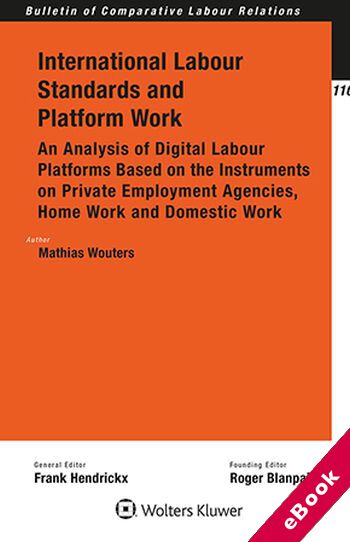
The device(s) you use to access the eBook content must be authorized with an Adobe ID before you download the product otherwise it will fail to register correctly.
For further information see https://www.wildy.com/ebook-formats
Once the order is confirmed an automated e-mail will be sent to you to allow you to download the eBook.
All eBooks are supplied firm sale and cannot be returned. If you believe there is a fault with your eBook then contact us on ebooks@wildy.com and we will help in resolving the issue. This does not affect your statutory rights.
International Labour Standards and Platform Work is a pioneering book that aims to answer the question of whether the International Labour Organization (ILO) should undertake standard-setting action on platform work. Platform work – matching the supply of and demand for paid labour through an online platform – is at the forefront of policymakers’ minds. It often depends on workers who operate in a “grey area” between the archetype of an employee and a self-employed worker. This important book explores the utility of existing standards of the ILO in governing this phenomenon. The book engages with ILO principles and guidelines that are relevant to the issue of platform work.
What’s in this book:
The study explores how three ILO conventions – the Home Work Convention, 1996 (No. 177), the Private Employment Agencies Convention, 1997 (No. 181), and the Domestic Workers Convention, 2011 (No. 189) – can be revitalised to have an impact on the platform work debate. In the course of the study, the book responds in depth to such questions as the following:
Given that the ILO plans to start discussions on a potential future standard for platform work in 2022, this book will prove very useful in highlighting the issues and standards that such discussions should consider.
How this will help you:
This incomparable book offers an in-depth understanding of what the instruments on private employment agencies, home work and domestic work aim to achieve and why this is important in the platform economy. Labour lawyers, in-house counsel, researchers, and policymakers will gain valuable insight into what decent work in the platform economy would require, thus greatly broadening the discussion on this difficult-to-regulate phenomenon.